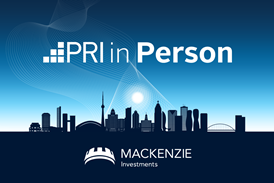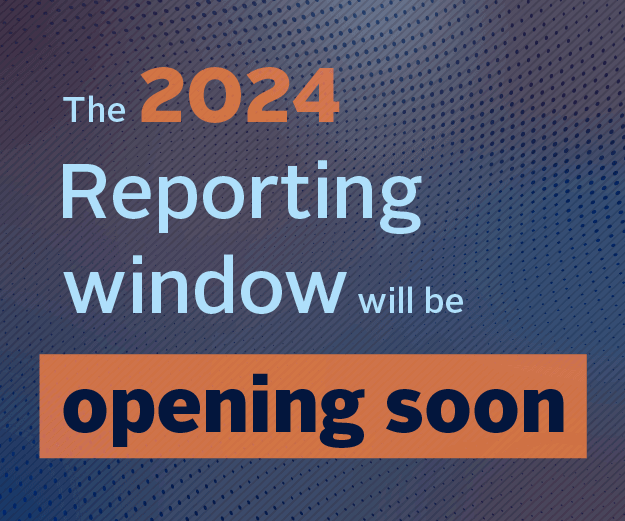By Anna Murray, Global Head of ESG, BentallGreenOak, and Co-chair PRI Real Estate Advisory Committee and Calvin Lee Kwan, Director of Sustainability and Risk Governance, Link REIT, and Co-chair PRI Real Estate Advisory Committee
ESG incorporation best practice
Real estate investors have a long history of responsible investment largely due to the relative homogeneity of the underlying assets – buildings. Unlike more diverse asset classes, real estate has benefitted from the development of sustainability certifications and comparable datasets. For example, BREEAM, one of the largest providers of green building certifications in the world, was established in 1990. The long-term nature of most real estate investing has also increased the focus on ESG factors. Longer investment horizons may result in a greater risk (or opportunity) that financially material ESG factors will arise.
The path to carbon net zero by 2050 runs through the heart of the global real estate industry.
And yet, as with investment returns, responsible investment approaches of the past are not always a reliable guide to future performance in this arena. Real estate investors like ourselves can’t afford to rest on our laurels; our approach to responsible investment must continually evolve so that we remain ahead of the game, continuing to manage ESG risks but also being increasingly mindful of the sustainability outcomes that real estate investment can influence.
Emissions reductions
Let’s start with climate change. Around 40% of global carbon emissions emanate from real estate, whether through the operational usage of buildings or from embodied emissions from construction materials, such as cement and steel. As such, the path to carbon net zero by 2050 runs through the heart of the global real estate industry. Our organisations recognise this and have each made net zero commitments: by 2035 in the case of Link REIT and by 2050 for BentallGreenOak.
What steps are we taking to achieve those commitments?
At Link REIT, our approach is embedded at both the corporate level and throughout our investment value chain. For example, we have put in place governance structures for net zero that guide our investment and procurement processes. We also work closely with our investees and tenants to drive greater operational efficiency, whether through education or through the identification and implementation of new technologies. BentallGreenOak manages climate risk through our due diligence process, proprietary sustainability data management system, climate adaptation tool and through robust stakeholder engagements. As part of our net zero target, we are analysing decarbonisations pathways focused on efficiency, electrification and renewable energy for specific funds.
We’ve also seen how the wider industry is responding to the challenge. Investor groups and associated frameworks, such as the Net Zero Asset Managers initiative and the Institutional Investors Group on Climate Change’s Net Zero Investment Framework, provide real estate investors with a clear steer for setting meaningful net zero targets. Several individual country chapters of the World Green Building Council have developed or are developing net zero building certifications, while the Carbon Risk Real Estate Monitor tool provides decarbonisation targets and pathways (in terms of greenhouse gas intensity) for different property types and individual countries for the global warming targets of 1.5°C and 2°C.
Focus on the S
There’s much more to unpack with regards to climate and broader environmental performance – real estate’s impact on biodiversity, the resilience of buildings to physical climate risks, the development and use of more sustainable building materials and techniques, among others – but we’re also seeing the real estate industry do more to measure the social impact of individual investments and/or entire strategies. Further, institutional investors are showing that generating positive social impact does not need to come at the expense of financial returns.
The Covid-19 pandemic has further changed the way in which real estate investors are considering social factors such as tenant health and well-being, given the fundamental changes many societies have experienced in terms of how we use residential, office and retail space. At BentallGreenOak, we’re placing ever greater emphasis on creating spaces that encourage movement and collaboration, striking the right balance between aesthetics and healthy working and living environments, and engaging directly with our tenants to generate mutually beneficial relationships.
Most sustainability certifications in the real estate space tend to focus on environmental aspects at the expense of social factors.
We’re also encouraged to see how newer certifications such as Fitwel and WELL are being used more widely to guide the development of buildings that emphasise people’s health and safety. Most sustainability certifications in the real estate space tend to focus on environmental aspects at the expense of social factors. Nonetheless, as with investors in other asset classes, we see the need for more meaningful social metrics so we can better understand and track performance in this regard.
To start addressing this gap, BentallGreenOak has developed a Social Impact Assessment, a data-driven tool that evaluates the social sustainability of our commercial real estate assets. It provides an in-depth assessment and a relative score for each asset’s social sustainability performance across community health and well-being, community development, and sustainable spaces. With the increasing demand for social indicators, we are constantly enhancing our data pipeline and analytical tools.
The next frontier
While we strive to do more with existing resources and tools, much of our progress on the environmental and social factors described above will come down to the identification and adoption of new technologies, whether in support of better data management, the continual enhancement of the tenant experience, or the drive for more efficient and sustainable building techniques. At Link REIT, examples include artificial intelligence for predictive energy management and distributed ledger technologies as immutable records of performance and productivity. These solutions help extract, organise, analyse and verify ESG information from a spectrum of data sources, strengthening regulatory compliance and enhancing the ability for investors to make informed decisions.
Similarly, at BentallGreenOak, we’ve established a Sustainable Innovation Lab, which has supported property level innovations, such as our climate resilience tool, which won the 2020 Canadian Green Building Pioneer Award. The lab also funds further research into sustainable real estate investing.
But these innovations and the use of technology also must not obscure the fundamentals of responsible investment in real estate. These include:
- good governance
- in-depth consideration of ESG factors during due diligence
- identification of areas for improvement and continual monitoring during the holding period
- collaboration across the real estate value chain
- informed tenant and wider stakeholder engagement
Getting these elements right means a strong foundation for our efforts to achieve the difficult but necessary goals we and our clients have set.
To learn more about best practices in responsible investment for real estate investors, read the PRI’s recently updated Introduction to Responsible Investment in Real Estate.
This blog is written by PRI staff members and guest contributors. Our goal is to contribute to the broader debate around topical issues and to help showcase some of our research and other work that we undertake in support of our signatories. Please note that although you can expect to find some posts here that broadly accord with the PRI’s official views, the blog authors write in their individual capacity and there is no “house view”. Nor do the views and opinions expressed on this blog constitute financial or other professional advice. If you have any questions, please contact us at [email protected].














